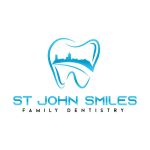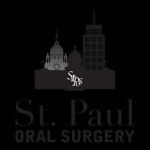How to Avoid Oral Cancer Through Prevention
- 1. Understanding Oral Cancer
- 2. Risk Factors for Oral Cancer
- 3. Preventive Measures to Avoid Oral Cancer
- 4. The Role of a Healthy Lifestyle in Preventing Oral Cancer
- 5. Importance of Oral Hygiene in Cancer Prevention
- 6. Diet and Nutrition for Oral Cancer Prevention
- 7. Screening and Early Detection for Oral Cancer
- 8. Real-Life Stories of Oral Cancer Prevention
- 9. Conclusion
1. Understanding Oral Cancer
Oral cancer, a type of head and neck cancer, affects the mouth, lips, gums, tongue, and throat. Understanding this disease is crucial in order to take necessary preventive steps. It can be fatal if not diagnosed and treated early, making awareness vital for effective prevention. Early warning signs include persistent mouth sores, difficulty swallowing, and changes in the voice.
2. Risk Factors for Oral Cancer
Several factors can increase the risk of developing oral cancer, including smoking, excessive alcohol consumption, and a history of HPV (Human Papillomavirus) infection. Lifestyle choices and environmental exposures play a significant role in oral health. Understanding these risk factors is crucial for anyone looking to reduce their chances of developing oral cancer.
3. Preventive Measures to Avoid Oral Cancer
Taking proactive measures can significantly reduce the likelihood of developing oral cancer. These measures include quitting smoking, moderating alcohol consumption, and protecting the lips from excessive sun exposure. Regular dental visits for check-ups and cleanings also play a vital role in early detection, which can be life-saving.
4. The Role of a Healthy Lifestyle in Preventing Oral Cancer
Maintaining a healthy lifestyle is crucial in the fight against oral cancer. Engaging in regular physical activity, eating a balanced diet rich in fruits and vegetables, and maintaining a healthy weight are essential aspects of cancer prevention. These habits boost the immune system and support overall health, including oral health.
5. Importance of Oral Hygiene in Cancer Prevention
Good oral hygiene can go a long way in preventing oral cancer. Brushing teeth twice a day, flossing regularly, and using mouthwash can reduce harmful bacteria and infections that may lead to cancer. Proper care also helps in the early detection of oral lesions, which could be signs of cancer.
6. Diet and Nutrition for Oral Cancer Prevention
A nutritious diet can help prevent oral cancer by strengthening the body's immune system. Foods rich in antioxidants, such as berries, leafy greens, and nuts, can combat free radicals and reduce inflammation. Reducing the intake of processed meats and high-sugar foods is also important in reducing the risk of cancer.
7. Screening and Early Detection for Oral Cancer
Regular screening by a dentist is an essential step in detecting oral cancer in its early stages. Early detection improves the chances of successful treatment. If any signs or symptoms of oral cancer are noticed, immediate consultation with a healthcare provider is advised.
8. Real-Life Stories of Oral Cancer Prevention
Many people have successfully avoided oral cancer through early detection and lifestyle changes. For instance, a non-smoker who visited the dentist regularly discovered early-stage oral cancer through a routine screening, ultimately leading to successful treatment. These real-life stories serve as valuable reminders that prevention and early detection are key.
9. Conclusion
Prevention is the most effective way to avoid oral cancer. Through understanding risk factors, maintaining a healthy lifestyle, good oral hygiene, and regular screenings, individuals can significantly reduce their risk. By incorporating these preventive measures, you can protect yourself and your loved ones from the dangers of oral cancer. To take action and safeguard your oral health, visit Dentistry Toothtruth for more information and access to expert advice.







 St John Smiles4.0 (238 review)
St John Smiles4.0 (238 review) Queens Dental Group4.0 (114 review)
Queens Dental Group4.0 (114 review) Smile Scarsdale Pediatric Dentistry & Family Orthodontics4.0 (480 review)
Smile Scarsdale Pediatric Dentistry & Family Orthodontics4.0 (480 review) Dr. Jean L. Beninato, DMD3.0 (7 review)
Dr. Jean L. Beninato, DMD3.0 (7 review) Dr. Bruce King DDS4.0 (112 review)
Dr. Bruce King DDS4.0 (112 review) St. Paul Oral Surgery - Mendota Heights4.0 (214 review)
St. Paul Oral Surgery - Mendota Heights4.0 (214 review) The Importance of Oral Health Education During Pregnancy for a Healthy Pregnancy
The Importance of Oral Health Education During Pregnancy for a Healthy Pregnancy Best Tips for Brushing Your Teeth Properly for Healthy Gums: Essential Techniques for Oral Health
Best Tips for Brushing Your Teeth Properly for Healthy Gums: Essential Techniques for Oral Health Why Skipping Dental Checkups Can Lead to Bigger Oral Health Problems
Why Skipping Dental Checkups Can Lead to Bigger Oral Health Problems Advantages of Porcelain Dental Restorations
Advantages of Porcelain Dental Restorations How Can Diabetes Cause Tooth and Gum Problems? Preventing and Managing Oral Health Issues
How Can Diabetes Cause Tooth and Gum Problems? Preventing and Managing Oral Health Issues Healthy Habits for Promoting Good Oral Health and Hygiene: Tips for a Healthy Smile
Healthy Habits for Promoting Good Oral Health and Hygiene: Tips for a Healthy Smile